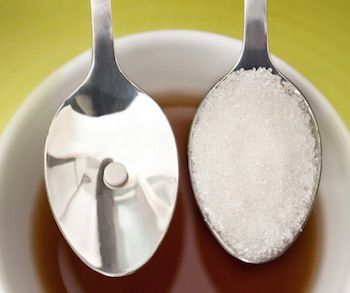
Introduction to Aspartame Sweetener
What is Aspartame?
Aspartame is an artificial sweetener that is used in many food and beverage products as a sugar substitute. It is about 200 times sweeter than sucrose, making it a popular choice for those looking to reduce their sugar intake while still enjoying sweet treats. Aspartame is made up of two amino acids, aspartic acid and phenylalanine, both of which are naturally found in many protein-containing foods.
History of Aspartame Usage
The history of aspartame dates back to the 1960s when it was discovered by chemist James M. Schlatter. It was later approved for use in foods and beverages by the U.S. Food and Drug Administration (FDA) in 1981. Since then, aspartame has been widely used in a variety of products such as diet sodas, sugar-free gum, and even certain pharmaceuticals. Despite some controversies surrounding its safety, aspartame remains one of the most commonly used artificial sweeteners in the world.
Safety Concerns Surrounding Aspartame
Debunking Common Myths
There have been several myths and misconceptions surrounding the safety of aspartame. However, numerous scientific studies have debunked these claims, demonstrating the safety of aspartame when consumed within acceptable daily intake levels. One common myth suggests that aspartame is linked to various health issues such as cancer. Despite these claims, regulatory bodies like the FDA and the European Food Safety Authority (EFSA) have extensively reviewed the scientific evidence and declared aspartame safe for consumption. It is essential to rely on factual information rather than unsubstantiated rumors when assessing the safety of food ingredients.
Regulatory Approval and Scientific Studies
Aspartame received regulatory approval after undergoing rigorous testing to ensure its safety. Scientific studies have consistently shown that aspartame is safe for the majority of the population, including pregnant women and children. The FDA has set an acceptable daily intake (ADI) for aspartame, which is a level considered safe for daily consumption over a person’s lifetime. Additionally, long-term studies have not provided concrete evidence to support the alleged health risks associated with aspartame consumption. Overall, regulatory approval and scientific research support the safety of aspartame as a sugar substitute in various food and beverage products.
Health Benefits of Aspartame
Role in Weight Management
Aspartame, as a low-calorie sweetener, plays a significant role in weight management. By providing sweetness without the added calories found in sugar, it can be a useful tool for individuals looking to reduce their calorie intake and manage their weight. Incorporating aspartame into a balanced diet can help satisfy sweet cravings without the concern of excess calories, making it a valuable option for those striving to maintain a healthy weight.
Impact on Blood Sugar Levels
Another benefit of aspartame is its impact on blood sugar levels. Unlike sugar, which can cause rapid spikes and drops in blood glucose, aspartame does not affect blood sugar levels. This makes it a suitable sugar substitute for individuals with diabetes or those monitoring their blood sugar levels. By providing sweetness without impacting blood glucose, aspartame offers a way to enjoy sweet flavors without compromising blood sugar control. This aspect of aspartame can be particularly beneficial for individuals seeking alternatives to sugar that won’t disrupt their blood sugar levels.
Aspartame in Food and Beverages
Aspartame is a widely used low-calorie sweetener in various food and beverage products. Its role extends beyond weight management and blood sugar levels, making it a popular choice among consumers looking for sugar alternatives.
Commonly Used in Diet Products
Aspartame is commonly found in a variety of diet products, including diet sodas, sugar-free gum, low-calorie desserts, and other sugar-free items. It provides a sweet taste without the added calories, making it a go-to ingredient for manufacturers looking to create products suitable for individuals watching their calorie intake.
Alternatives to Aspartame
While aspartame is a commonly used sweetener, some individuals prefer to avoid it due to personal preferences or health reasons. There are several alternatives to aspartame available, such as stevia, sucralose, and monk fruit sweeteners. These alternatives offer different flavor profiles and may appeal to individuals looking for non-aspartame options in their food and beverages. It’s essential to explore these alternatives to find the sweetener that best suits individual preferences and dietary needs.
Also Read: Discover the Truth About Artificial Sweeteners: Benefits,…
Side Effects and Allergies Related to Aspartame
Side Effects and Allergies Related to Aspartame:While aspartame is widely used as a low-calorie sweetener, there are potential side effects and allergic reactions associated with its consumption. It’s crucial for consumers to be aware of these risks to make informed choices about their diet and overall health.
Potential Adverse Reactions
Consuming aspartame may lead to potential adverse reactions in some individuals. These reactions can include headaches, dizziness, mood changes, and digestive issues. Some studies have also suggested a possible link between aspartame consumption and certain health conditions, although more research is needed to confirm these findings.
Identifying Allergic Symptoms
Individuals who are allergic to aspartame may experience symptoms such as hives, itching, swelling, trouble breathing, and gastrointestinal problems. It’s essential to consult a healthcare provider if you suspect that you are experiencing an allergic reaction to aspartame or any other additives in your food or beverages. Being aware of these symptoms can help you make informed choices about your dietary preferences and overall well-being.
